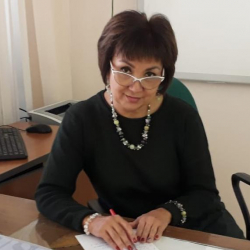|
Dialogue 1
- What pet do you like in Betsey's house?
- I like all of them. But most of all I like Mother.
- Can you tell why?
- Because Mother is a great hunter.
- She lives in Betsey's house, but she plays outside
- Yes, she is independent.
- Do you think she teaches Blacky and Wally?
- Sure. She is the oldest and the biggest cat at
home.
- I think Betsey loves her cats very much.
- I agree with you. We are always there for our
pets.
Dialogue 2
- How many pets are there in Betsey’s house?
- There are five of them.
- Are there any dogs in Betsey’s house?
- Yes, Fourby and Henry are Betsey’s dogs.
- Where does Fourby come from?
- She comes from rescue home .
- Can you tell me why exactly Labradors are guide
dogs?
- Because they are very special dogs. They are
kind and clever.
- And what about Henry? Has he got a real job ?
- No, Henry has an easy life. But I’m sure he can
be very useful .
- Of course, the animals are always there for us.
|

















